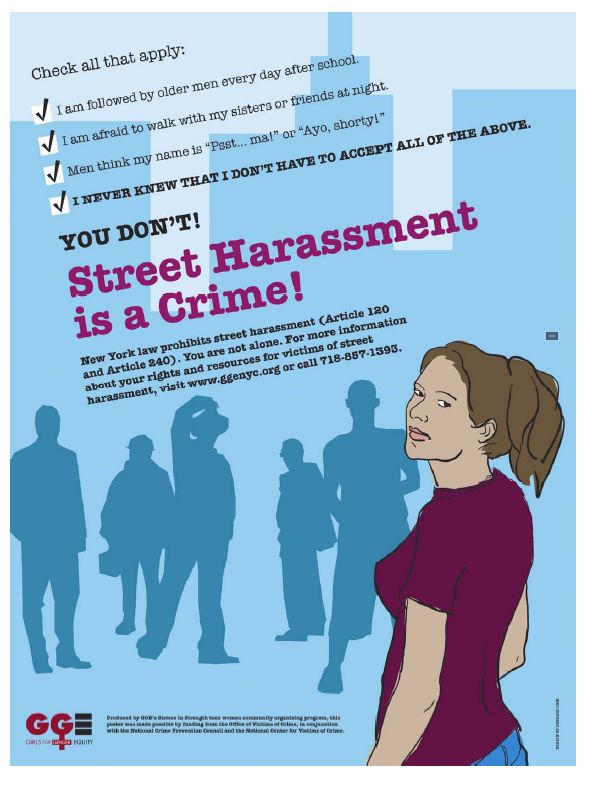Report on the Debate Over Sex Education and Library Book Access in Alabama
Introduction
Two years ago, a survey revealed that 90% of Americans aged 18 to 44 felt unprepared by their sex education, highlighting significant gaps in sexual health knowledge. In Alabama, a current dispute over access to sex education books in public libraries has reignited cultural and political debates regarding how, and whether, teenagers should receive sex education. This issue is particularly critical given Alabama’s high rates of teenage births and sexually transmitted infections (STIs), which relate directly to several Sustainable Development Goals (SDGs), including SDG 3 (Good Health and Well-being), SDG 4 (Quality Education), and SDG 5 (Gender Equality).
Context and Background
- Young people often turn to media such as books and the internet to compensate for inadequate sex education.
- Advocates emphasize the role of libraries as vital resources for accurate sexual health information.
- Alabama faces significant public health challenges, including high teen birth rates and STI incidences, which are among the highest nationally.
Controversy Over Library Book Access
The debate centers on whether books like Doing It! Let’s Talk About Sex, a candid sex education guide for teens, should be restricted to adult-only sections of libraries, limiting accessibility for the intended teenage audience.
- Positions of Library Officials and Advocacy Groups
- Alabama Public Library Services (APLS) officials assert no intention to ban sex education books but advocate protecting children from materials they consider to normalize sexual behavior at young ages.
- APLS adopted a policy preventing books with sexual content from being accessible to youths under 18 without parental consent.
- Conservative groups, including Moms for Liberty, have flagged certain books, leading to potential funding consequences for libraries that do not comply with reshelving demands.
- Advocates’ Concerns
- Sex education advocates argue that restricting access undermines efforts to address public health issues aligned with SDG 3.
- They emphasize that teenagers are already engaging with sexual content through peers and online sources, which may be inaccurate or harmful.
- Advocates call for age-appropriate shelving rather than outright restriction to ensure access while respecting parental guidance.
Public Health Implications
- Alabama ranks eighth highest in teenage birth rates nationally and has some of the highest rates of STIs such as chlamydia, gonorrhea, and syphilis.
- Experts link comprehensive sex education to reductions in STIs and unintended pregnancies, supporting SDG 3 targets on health and well-being.
- Of the 15 states with the lowest teenage birth rates, 10 mandate sex education in schools, underscoring the importance of educational access.
Library Policies and Access
- Current Policies
- Books with sexual references are to be placed in adult sections, accessible to minors only with parental permission via all-access library cards.
- Library officials emphasize balancing access for families desiring broader materials with protection for those preferring restricted exposure.
- Advocacy for Age-Appropriate Access
- Organizations like Read Freely Alabama advocate for shelving sex education books in teen-appropriate sections to support informed decision-making and health education.
- Concerns exist about vague definitions of “sexually explicit” content creating fear among library directors and risking funding.
Legislative Context
- Recent legislative efforts in Alabama have focused on mandating abstinence-only or “sexual risk avoidance” education, reflecting a conservative approach to sex education.
- Such legislation has faced opposition and failed to pass, with critics arguing it limits comprehensive education and does not reflect the realities faced by youth.
- Alabama’s sex education has been rated poorly by organizations such as the Sexuality Information and Education Council of the United States (SIECUS), receiving a C- overall and a D+ for content quality.
- State law requires medically accurate sex education if provided, and mandates AIDS education starting in fifth grade, but local districts have discretion over implementation.
Challenges and Recommendations
- Challenges
- Inconsistent policies and lack of comprehensive sex education contribute to public health issues, including high STI and teen pregnancy rates.
- Restrictions on educational materials may hinder progress toward SDG 3 (Good Health and Well-being) and SDG 4 (Quality Education).
- Teenagers often seek sexual health information from potentially unreliable online sources, increasing risks.
- Recommendations
- Implement age-appropriate access to sex education materials in libraries to support informed decision-making.
- Encourage comprehensive, medically accurate sex education in schools aligned with SDG 4 targets.
- Promote parental involvement and open communication to create supportive environments for youth learning.
- Address legislative barriers to comprehensive sex education to improve public health outcomes consistent with SDG 3 and SDG 5 (Gender Equality).
Conclusion
The ongoing debate in Alabama over access to sex education books in libraries reflects broader challenges in achieving Sustainable Development Goals related to health, education, and gender equality. Ensuring that young people receive accurate, age-appropriate sexual health information is critical to reducing teenage pregnancies, STIs, and promoting well-being. Balancing parental rights with youth access to education requires thoughtful policies that support the developmental needs of adolescents while respecting community values.
1. Sustainable Development Goals (SDGs) Addressed or Connected
- SDG 3: Good Health and Well-being
- The article discusses issues related to sexual health, including high rates of sexually transmitted infections (STIs) and teenage pregnancies in Alabama.
- It highlights the importance of sex education to prevent STIs and unintended pregnancies.
- SDG 4: Quality Education
- The article focuses on the quality and accessibility of sex education for teenagers, including debates over library book access and school curricula.
- It discusses the need for medically accurate and comprehensive sex education.
- SDG 5: Gender Equality
- The article touches on topics such as sexual orientation, gender identity, and expression, which relate to inclusivity and equality in education.
- It mentions the exclusion of LGBTQ youth in sex education standards.
- SDG 16: Peace, Justice and Strong Institutions
- The article highlights political and legislative debates affecting access to information and education, reflecting governance and institutional challenges.
2. Specific Targets Under Those SDGs Identified
- SDG 3: Good Health and Well-being
- Target 3.3: By 2030, end the epidemics of AIDS, tuberculosis, malaria and neglected tropical diseases and combat hepatitis, water-borne diseases and other communicable diseases.
- Target 3.7: By 2030, ensure universal access to sexual and reproductive health-care services, including family planning, information and education.
- SDG 4: Quality Education
- Target 4.7: By 2030, ensure that all learners acquire knowledge and skills needed to promote sustainable development, including health education and human rights.
- SDG 5: Gender Equality
- Target 5.6: Ensure universal access to sexual and reproductive health and reproductive rights as agreed in accordance with the Programme of Action of the International Conference on Population and Development.
- SDG 16: Peace, Justice and Strong Institutions
- Target 16.6: Develop effective, accountable and transparent institutions at all levels.
- Target 16.10: Ensure public access to information and protect fundamental freedoms.
3. Indicators Mentioned or Implied to Measure Progress
- SDG 3 Indicators
- Incidence rates of sexually transmitted infections (STIs) such as chlamydia, gonorrhea, and syphilis in Alabama compared to national averages.
- Teenage birth rates in Alabama, ranked eighth highest in the U.S.
- Rates of unintended pregnancies among teenagers.
- SDG 4 Indicators
- Percentage of schools mandating sex education as part of the curriculum.
- Quality and inclusivity of sex education content, including medically accurate and LGBTQ-inclusive materials.
- Access to sex education resources in public libraries and schools.
- SDG 5 Indicators
- Inclusion of sexual orientation and gender identity topics in sex education curricula.
- Access to sexual and reproductive health information for all genders.
- SDG 16 Indicators
- Legislative actions and policies affecting access to information (e.g., book bans, library funding conditional on book placement).
- Public participation and transparency in decision-making about educational content.
4. Table of SDGs, Targets, and Indicators
| SDGs | Targets | Indicators |
|---|---|---|
| SDG 3: Good Health and Well-being |
|
|
| SDG 4: Quality Education |
|
|
| SDG 5: Gender Equality |
|
|
| SDG 16: Peace, Justice and Strong Institutions |
|
|
Source: al.com







